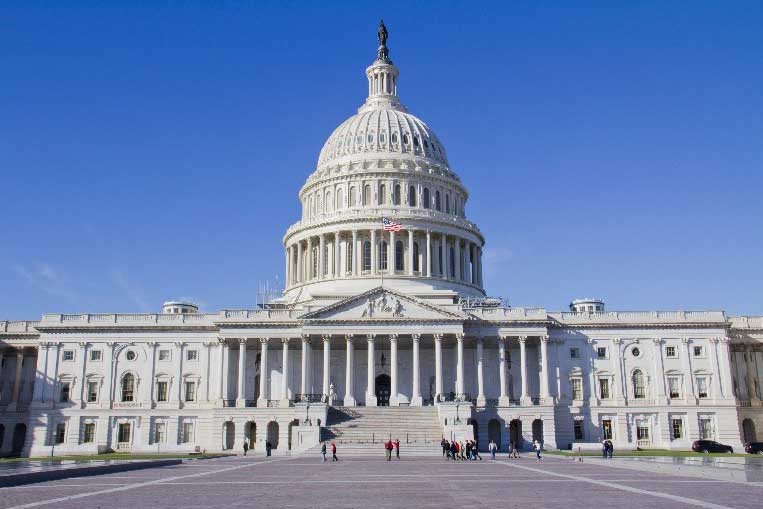 The end of each two-year session of Congress is usually a hectic and busy time. Much like a student who has months to work on a school project but waits until the night before it’s due, the few weeks between the November elections and the start of the next session of Congress in January – commonly known as the “lame duck” – is when a lot of legislating gets done.
The end of each two-year session of Congress is usually a hectic and busy time. Much like a student who has months to work on a school project but waits until the night before it’s due, the few weeks between the November elections and the start of the next session of Congress in January – commonly known as the “lame duck” – is when a lot of legislating gets done.
This lame duck session included two major bills that Congress had a strong motivation to pass. These bills – the National Defense Authorization Act (NDAA) and the fiscal year 2023 omnibus spending bill – served as the vehicles to which Members of Congress looked to attach their priority bills before the end of the session. When it passed in Congress in early December, ASA’s Connor Bevan previously wrote about several ASA priorities included in the NDAA. That left the omnibus spending bill as the last-gasp opportunity for passage of any remaining bills.
ASA’s government affairs team has spent countless hours working on a wide range of legislative priorities since the start of the 117th Congress – and for some bills, several sessions before then. While not all were accomplished, the omnibus bill passed by Congress this week contained numerous legislative and funding priorities that will benefit fisheries conservation and fishing access, including:
- The Driftnet Modernization and Bycatch Reduction Act, which will phase out the last remaining fishery in the US that allows highly destructive large mesh drift gillnets.
- Language from the Fishery Failures: Urgently Needed Disaster Declarations Act, which will streamline the federal process for declaring fishery disasters and distributing relief funds. ASA worked with Congress to ensure adequate inclusion of the recreational fishing industry.
- Increased funding for a wide range of marine fisheries management programs, including fisheries data collection, stock assessments, Pacific salmon recovery and implementation of the Modern Fish Act.
- Funding and policy direction on South Atlantic and Gulf of Mexico red snapper management, which helps prevent hasty management decisions that would unnecessarily restrict recreational fishing opportunities.
- Continuing to prohibit the Environmental Protection Agency from regulating lead fishing tackle.
- Increased funding for the National Fish Hatchery System.
- Helping to prevent the spread of Aquatic Invasive Species, including Asian Carp in the Great Lakes and Mississippi River watershed.
- Funding boosts for several important regional conservation efforts, including the Great Lakes Restoration Initiative, Chesapeake Bay Program and South Florida Program.
As pleased as we are with Congress’s actions on these issues, there is still more work to do. While NDAA and the omnibus were significant in their accomplishments, many priorities for our community, unfortunately, did not make the cut. These include:
- The Recovering America’s Wildlife Act, which would dedicate $1.4 billion to states, territories and tribes to help prevent fish and wildlife from becoming threatened or endangered. Although Congressional leaders widely support the policy goals, the clock ran out before a funding offset for the bill was finalized.
- America’s Outdoor Recreation Act, which will improve public land management and accessibility. Unfortunately, negotiations over packaging together various public land measures, including this bill, fell apart.
- The Reinvesting in Shoreline Economies and Ecosystems (RISEE) Act, which would dedicate revenues from offshore wind development back to coastal states for infrastructure and restoration projects. Given the rapid pace at which offshore wind projects are being approved, the motivation for Congress to pass this bill and capture these revenues for the states they represent will continue to increase.
In addition to these bills that were not included in the omnibus, ASA will have a robust legislative agenda for the 118th Congress. Stay tuned for more information on these priorities, which we will quickly begin presenting to Congress as it gets sworn in in January.
Share This Article, Choose Your Platform:
Recent Posts

